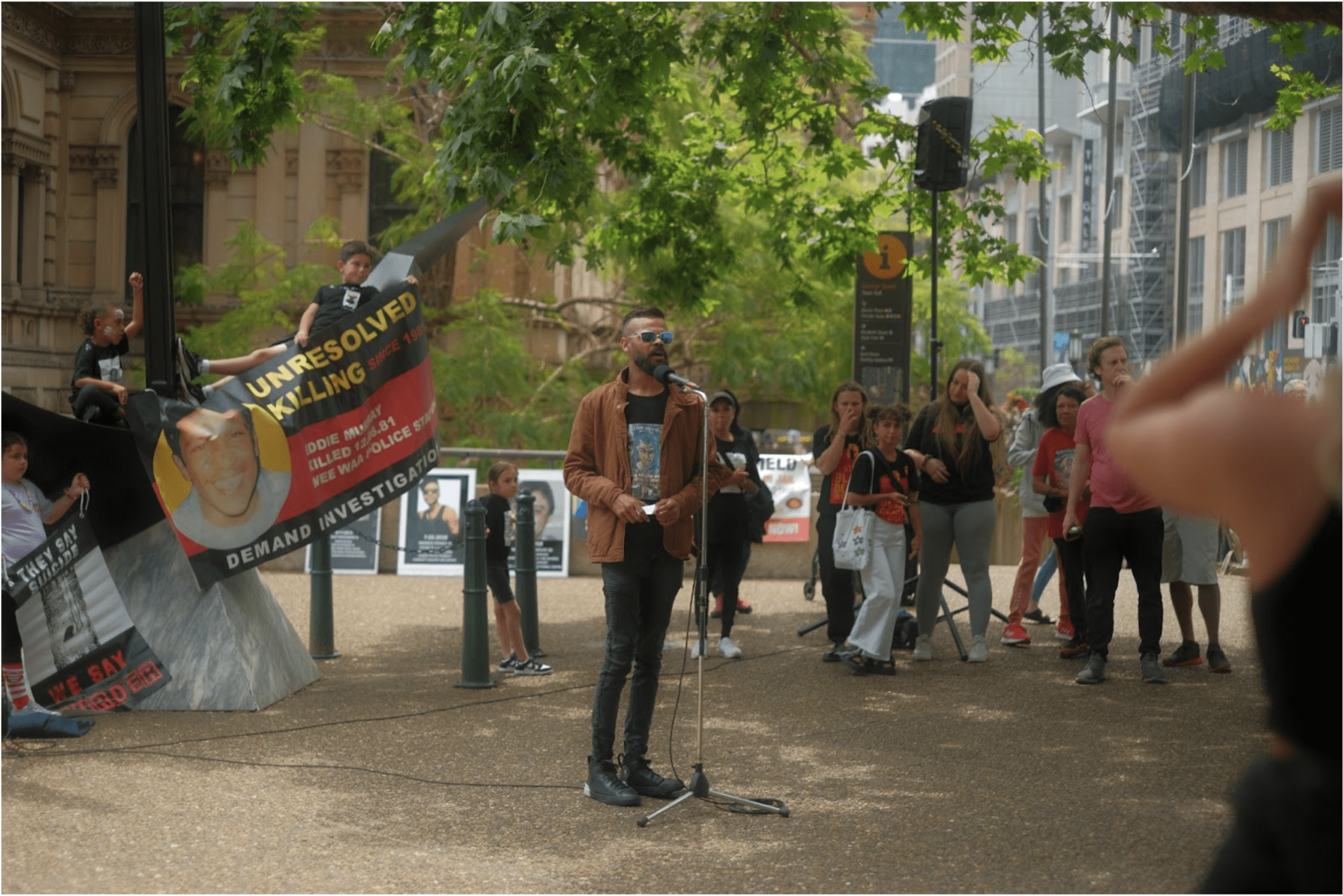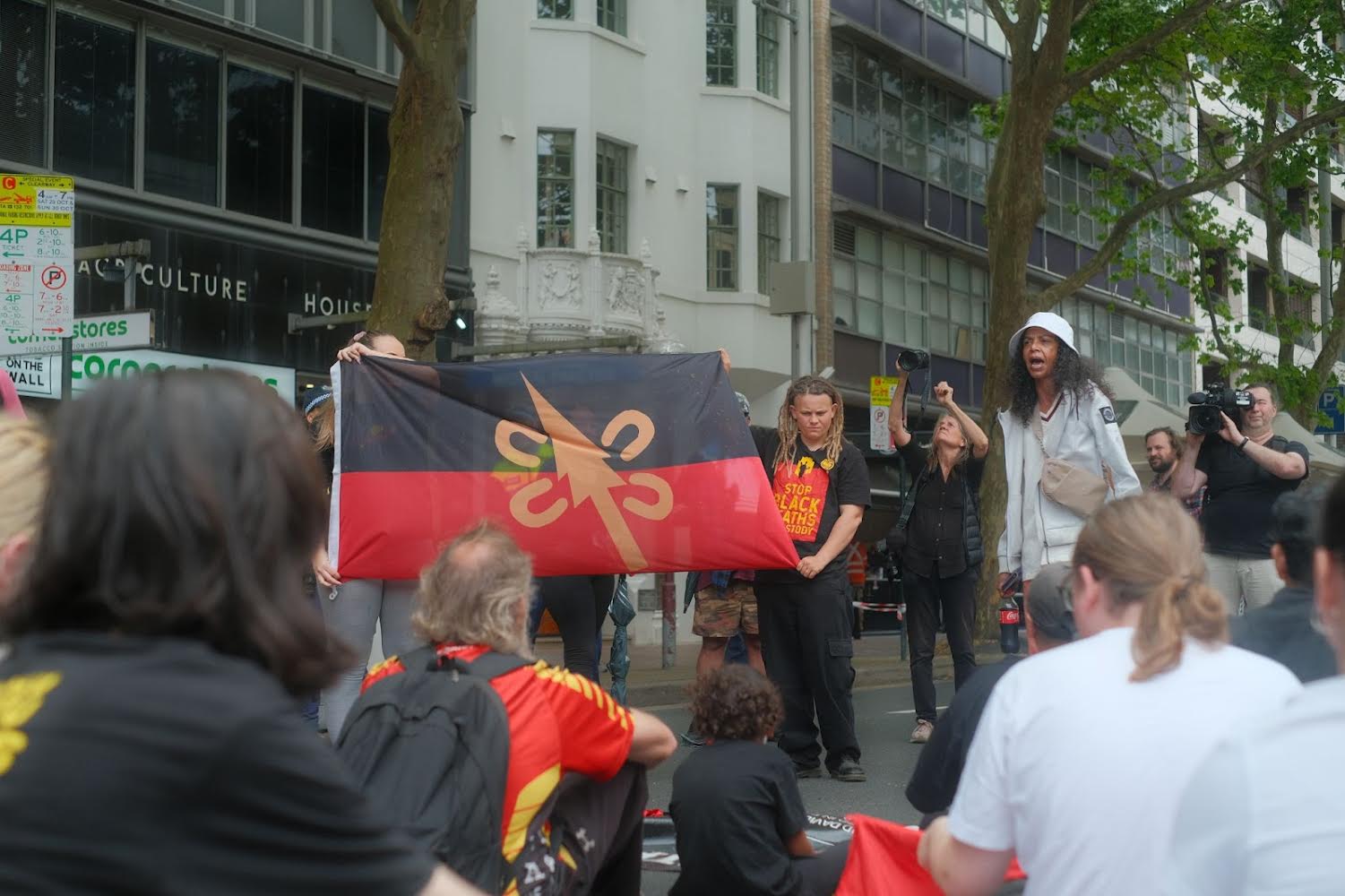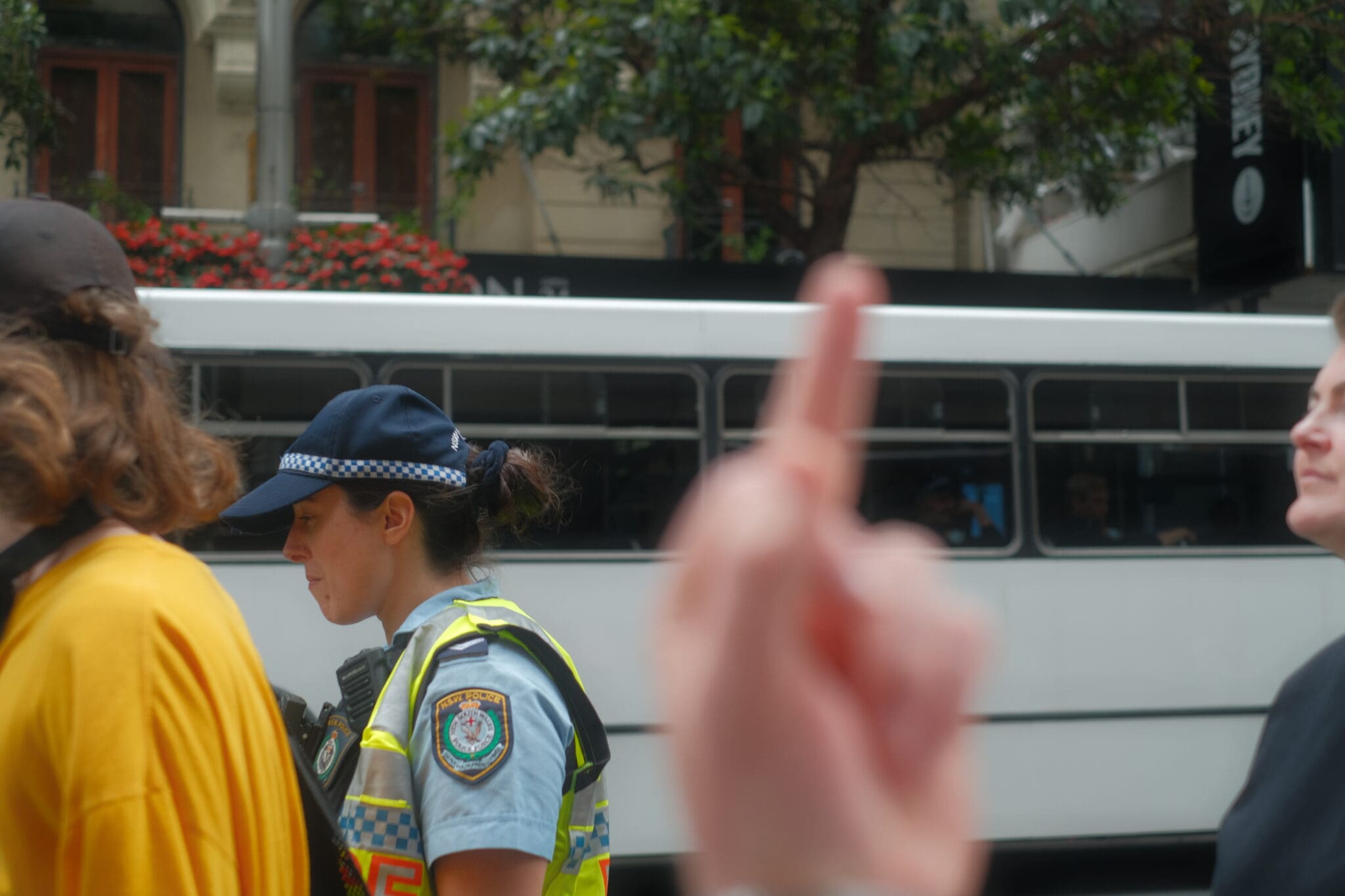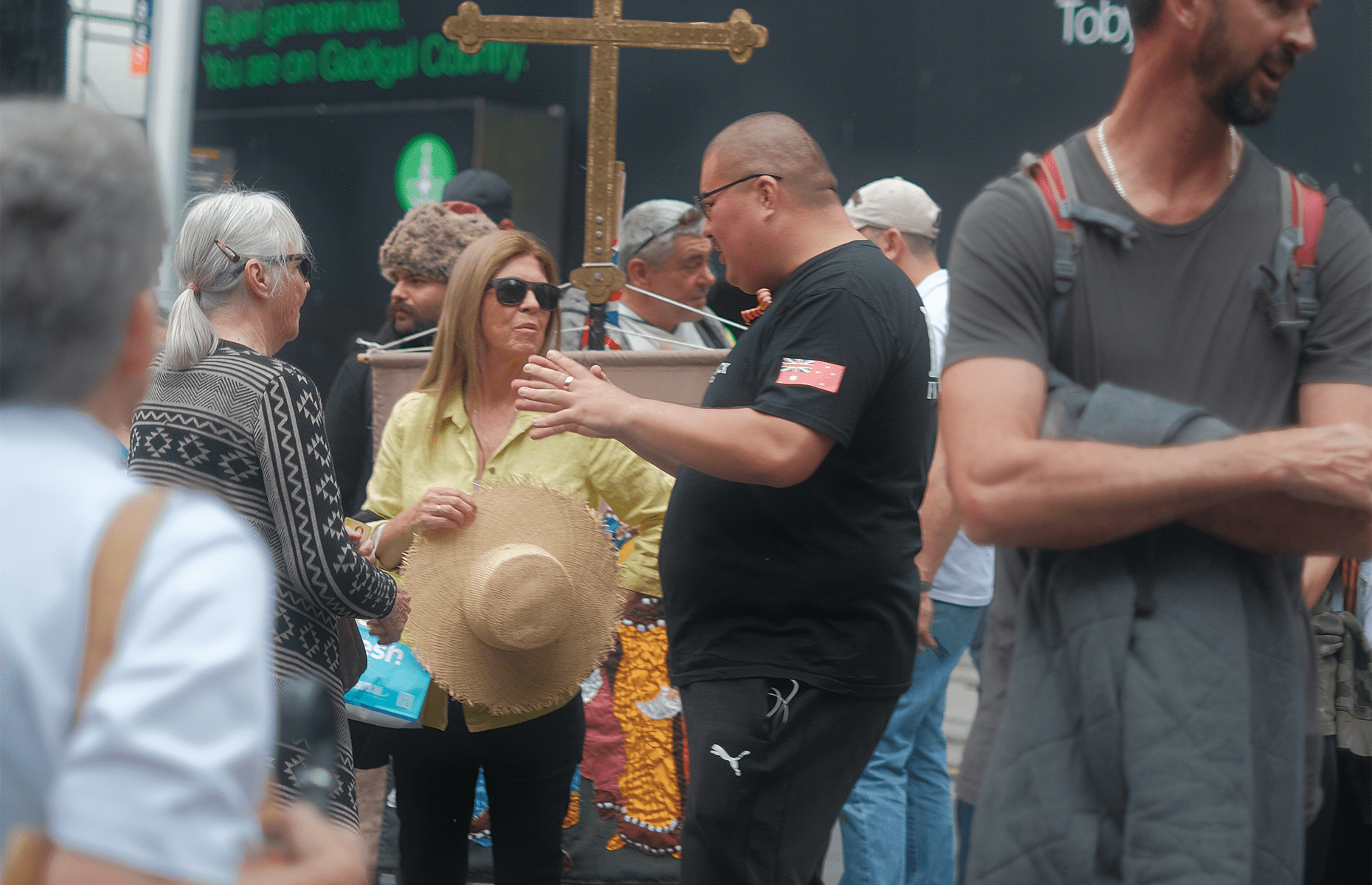CW: Honi advises Aboriginal and Torres Strait Islander readers that this article may contain images, perspectives and names of deceased persons. Readers are warned that this article mentions police violence towards Aboriginal and Torres Strait Islander peoples.
A small but vocal group of protestors marched to NSW Parliament House this Saturday to demand an end to Black deaths in custody, an independent investigation into all deaths, prosecution of killer cops, the abolition of youth prisons and funding for self-determining organisations.
Organised by Fighting in Solidarity Towards Treaties (FIIST) and chaired by First Nations activist and son of the late David Dungay Jnr., Paul Silva, the rally brought together several First Nations activists, who spoke with anger of the woeful intransigence of government in failing to protect and provide for FN peoples in the justice and health systems. Uncle Dave Bell opened with a Welcome to Country, acknowledging FN people across NSW.
Silva spoke of the rising numbers of death in custody since last year, citing the recent refusal by the NSW government to allow United Nations (UN) prison inspectors to access “inhumane” detention facilities, despite Australia’s ratification of the UN’s Optional Protocol to the Convention Against Torture (OPCAT).
“[The government’s refusal to allow UN prison inspections] is criminal to the many people in custody who’ve died at the hands of corrective officers or police,” Silva said.

Leetona Dungay, mother to David Dungay Jnr., spoke to the systemic failure of the government and correctional facilities in causing her son’s death in Sydney’s Long Bay Jail in 2015.
“How can you have 700 victims and have no one charged? David had the right to life, the right to be safe, and, as his mother, I have the right to demand justice,” Dungay said.
Despite an inquest in 2018 and coronial findings in 2019, there have been no charges laid against the five guards involved.
“Will you help me in this fight?” she asked the crowd.
Aunty Gwenda Stanley from FIIST and the Aboriginal Tent Embassy echoed Silva’s frustrations at the refusal of the state government to investigate NSW’s prisons and detention facilities.
“You want to start addressing the inhumane conditions of our people? Start right here in the colony where it started,” she said.
She also called on the UN, Australian government and the Commonwealth to enact a bill of rights because “the Australian government has failed us. Liberal, Labor, it doesn’t matter which party because you are still here to kill us”.
“The deaths of our people still continue today. We are homeless, we are dispossessed, we are the most incarcerated. Our people are dying, my people are dying. Not only from cancers, but from genocide, from heartache, from dispossession, but most of all, from systemic racism,” Aunty Gwenda said.

Stanley also read aloud a statement from Grandmothers Against Removal (GMAR) in the Northern Territory, who are calling for the forced closure of Don Dale Youth Detention Centre, in addition to the abolition of youth detention centres. In their statement, they cite the systemic human rights breaches and shocking rates of self harm which coincide with a “punitive, tough on crime regime” like that which allows children as young as ten to be detained.
Despite a Four Corners investigation and a subsequent Royal Commission which “laid bare the extent of systemic abuse” in these prisons, little has been done to adopt the findings of the Royal Commision, despite a push to raise the age of criminal responsibility.
The statement also laments the failure of such institutions for Indigenous children, as they are then deemed “hopeless to escape a system” which contains some of the highest numbers of incarcerated Indigenous youth and youth suicide rates.
They also recognise that raising the age is not enough, and that nothing short of self determination will end these injustices: “That is not progress, not when the very colonial system that created and perpetrates the atrocities in Don Dale is woven throughout every piece of legislation, institution, policy and practice.”
Kyah Patten, granddaughter of FN activist Jack Patten, criticised the large police presence at the rally, and echoed criticisms of ongoing police brutality which bar FN peoples from healing from ongoing intergenerational trauma.
“We’re not here to cause trouble. Here you have an army of coppers in blue, and for what? We’re here to be heard, to be seen, you’re here for trouble. You’re the ones who’re the problem, not us,” Patten said.
“You’d think each time I get behind this mic it gets easier for me, but it doesn’t. It only gets harder, because we have to talk about the same incidents, the same pain that we’re trying to heal from,” she said.
“There’s another person who’s died, another blackfulla murdered, another one of our kids missing. When will it stop?”
NSW Greens member David Shoebridge talked briefly on the main points raised by Gwenda Stanley and briefly acknowledging former Greens senator Lidia Thorpe’s role in “speaking truth to power” through her activism and criticism of the Uluru Statement from the Heart.
The rally prevailed despite a visible police presence and a separate protest led by Russian nationalist YouTuber Aussie Cossack, who was there to agitate.


Following chants of “too many coppers, not enough justice” and “always was, always will be, Aboriginal land”, protestors then marched to Parliament house for a quick sit-in and round of speeches before the close of the rally.
*Note: This article was amended to clarify that Cossack’s protest was not a counter-protest, however, it reportedly agitated rally attendees.





